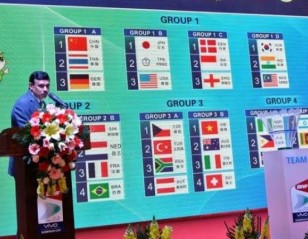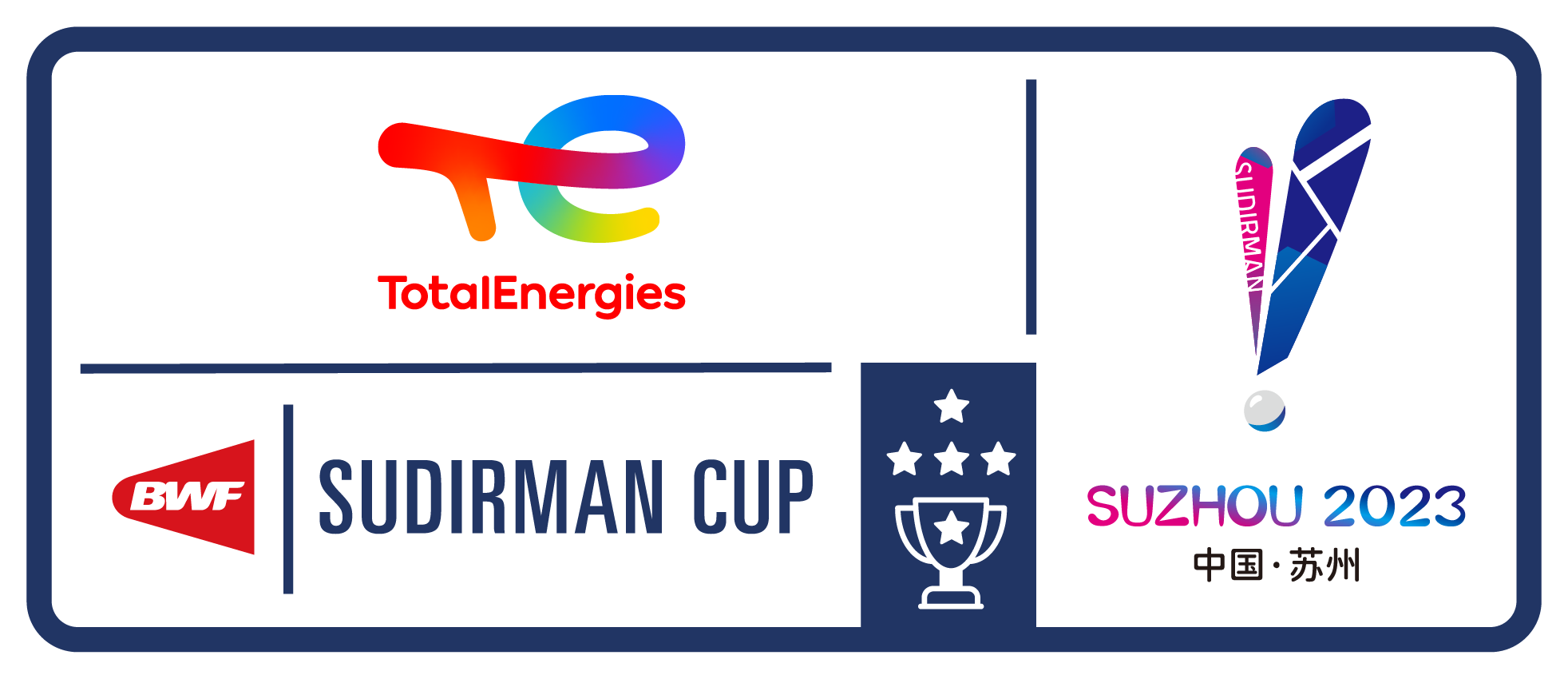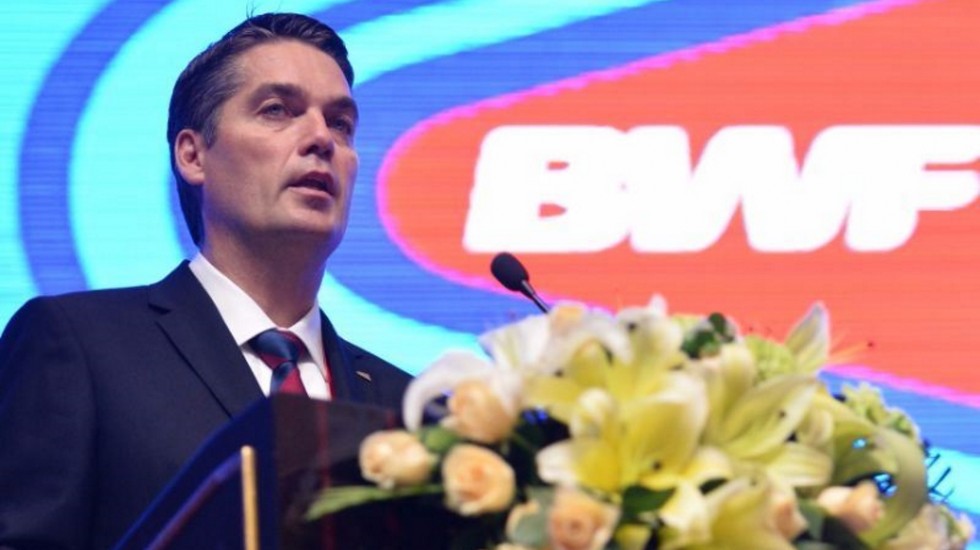
Høyer: Innovation and Integrity Key Ingredients
Innovation; the importance of keeping badminton “clean”; inclusion in the Paralympic Games and the Rio 2016 Olympic Games were among highlights of the President’s Review at the 76th BWF Annual General Meeting today.
Opening the yearly gathering – attended by 106 of the Badminton World Federation’s 182 member associations – Poul-Erik Høyer hailed 2014 as “a truly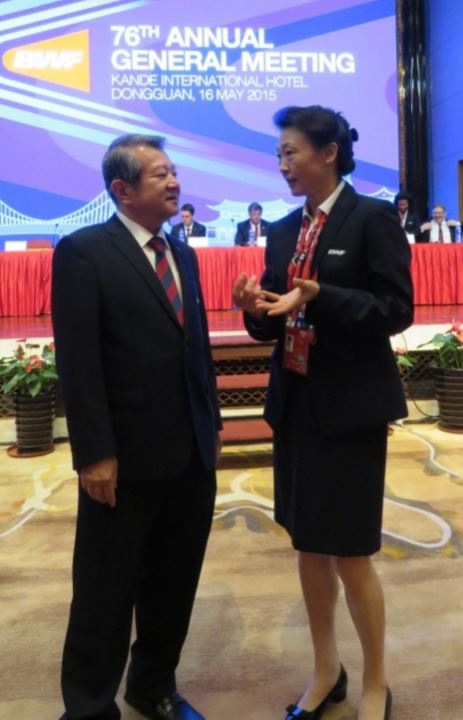 productive one (year) with some significant achievements” while stressing key areas on which the world-governing body must continue to focus and improve – including badminton’s standing as a sports-entertainment commodity.
productive one (year) with some significant achievements” while stressing key areas on which the world-governing body must continue to focus and improve – including badminton’s standing as a sports-entertainment commodity.
“Badminton needs to deliver a really great product in the very competitive global sports market…to create more enjoyment and excitement for spectators and viewers and to meet the expectations of our fans,” he told delegates in Dongguan, China.
“Last year we made a really great effort to review the current scoring system which has been in place since 2006 – and I thank all those who participated in this. The testing has given valuable input to the process to develop the game. We, the Council, feel it is our obligation to keep on thinking about innovation and progress of our game, and the Council will again discuss this next Tuesday to determine what we need to do to follow up (on) the data collection process since November 2014.”
The BWF President also said badminton must continue to be a clean sport, “free of corruption and manipulation from external forces”.
“We take this seriously…Everyone has a role in this. As members – you all have an obligation to provide education programmes for our youth in the sport in the areas of anti-doping and anti-match fixing,” noted Høyer, adding that BWF is taking various measures in this regard.
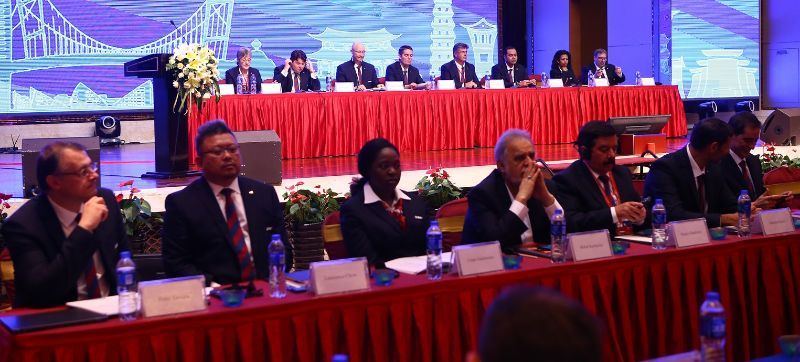
Calling badminton’s inclusion on the Tokyo 2020 Paralympic Games sports programme “one of the really great achievements of 2014”, he stated this “will be another opportunity to demonstrate that badminton is truly a sport for all”.
Alluding to yesterday’s Member’s Forum, he referenced the keynote address by retired Canadian Paralympic swimmer Stephanie Dixon, saying: “We heard an inspirational presentation from a really talented Paralympic champion…I can’t help but wonder which para-badminton stars will emerge in the next five years as 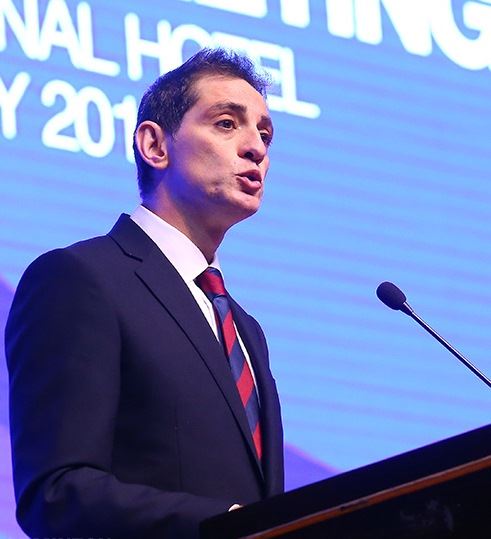 we prepare for the Tokyo 2020 Paralympic Games.”
we prepare for the Tokyo 2020 Paralympic Games.”
On a related note, Høyer said BWF has just entered another Olympic Qualification Period which will conclude with the Rio 2016 Olympic Games next year August “so we are looking forward to a very interesting year ahead of us”.
The President also acknowledged the vital role of BWF’s partnerships with sponsors, tournament hosts and its peers in the global sporting community such as the International Olympic Committee and the Association of Summer Olympic International Federations – all of which bolster its position as a sports federation.
In closing, he underlined BWF’s commitment to supporting badminton’s development worldwide while reminding the membership that their work is “central to the long-term success of the sport”.
The chairs of the Council’s committees, such as Administration, Communications, Development, Events, Finance, Marketing and Para-Badminton, then reported on the past year’s progress in their respective areas of responsibility.
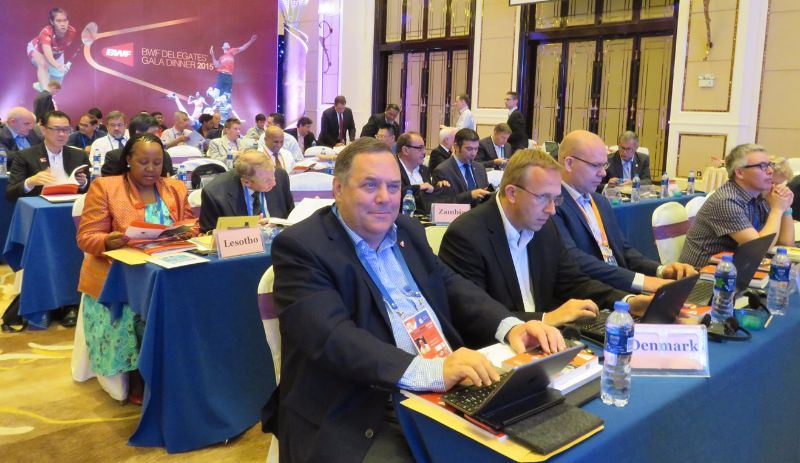
*****
CAPTIONS:
BWF home page: BWF President Poul-Erik Høyer addresses the BWF Annual General Meeting.
Top right: Deputy Chair of Events, Li Lingwei (right), chats with Chair of Finance, Lim Teong Kiat.
Centre: BWF Council members at today’s Annual General Meeting.
Left: Chair of Development David Cabello reported that half of BWF’s 182 members have now implemented BWF’s schools-based grassroots programme, Shuttle Time.
Bottom: Delegates from some of the 106 BWF member associations which were present.
Text by Gayle Alleyne | BWF, BadmintonPhoto & Edwin Leung
Sudirman Cup News
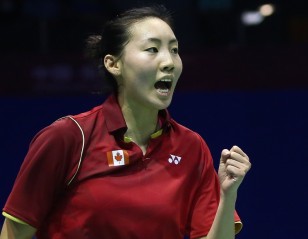
No Dearth of Quality – Vivo BWF Sudirman Cup Review 22 May 2015
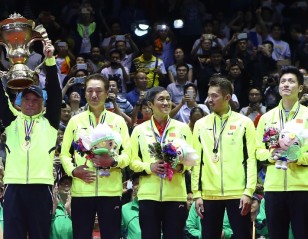
Tenth Title for China – Vivo BWF Sudirman Cup Finals 17 May 2015
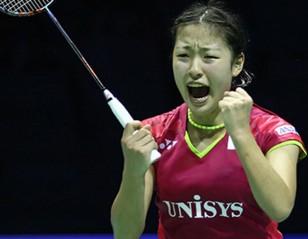
Japan in Maiden Sudirman Cup Final – Vivo BWF Sudirman Cup Semi-finals 16 May 2015
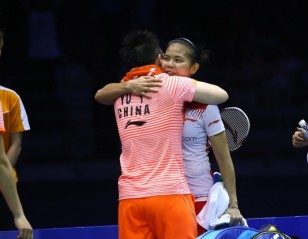
China Too Strong for Indonesia – Vivo BWF Sudirman Cup Semi-finals 16 May 2015
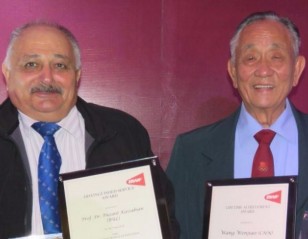
Spotlight on Icons 16 May 2015
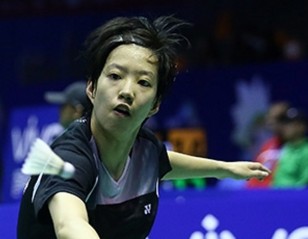
Hong Kong Emerge Group 2 Champions – Vivo BWF Sudirman Cup Day... 16 May 2015
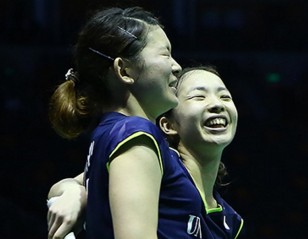
Japan Survive Danish Scare – Vivo BWF Sudirman Cup Day 6 Session... 15 May 2015
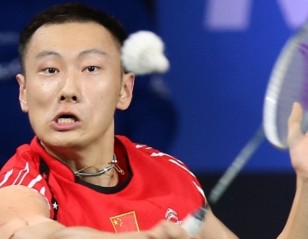
China, Korea Enter Semi-finals – Vivo BWF Sudirman Cup Day 5 Session... 14 May 2015
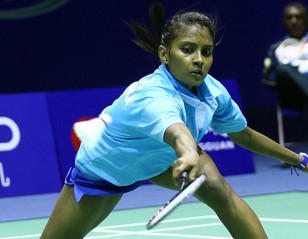
Sri Lanka Edge Past Israel – Vivo BWF Sudirman Cup Day 5... 14 May 2015
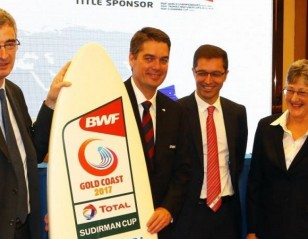
Total and BWF Partnership Revs Up 14 May 2015
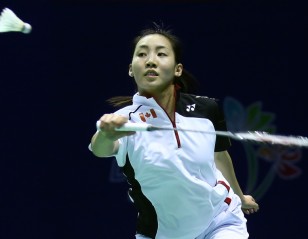
Spain beat Canada Despite Li’s Heroics – Vivo BWF Sudirman Cup Day... 14 May 2015
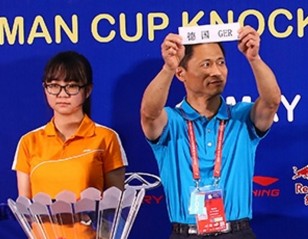
Malaysia to Face Korea Again – Vivo BWF Sudirman Cup Quarter-final Draw 13 May 2015
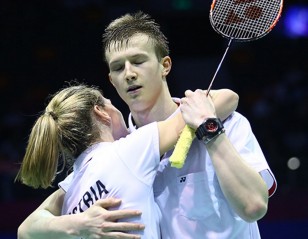
Japan Too Strong for Chinese Taipei – Vivo BWF Sudirman Cup Day... 13 May 2015
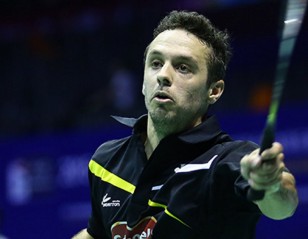
Netherlands Down Spain – Vivo BWF Sudirman Cup Day 3 Session 1 12 May 2015
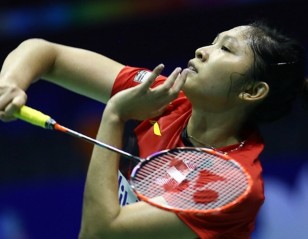
Indonesia, Malaysia Emerge Victorious – Vivo BWF Sudirman Cup Day 2 Session... 12 May 2015
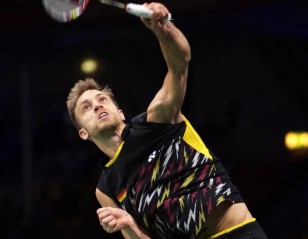
Thailand Stumble to Germany – Vivo BWF Sudirman Cup Day 2 Session... 11 May 2015
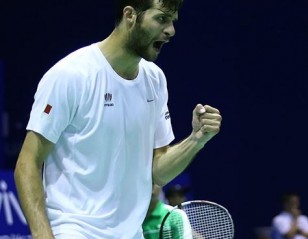
Malaysia Stun Korea – Vivo BWF Sudirman Cup Day 1 Session 2 10 May 2015
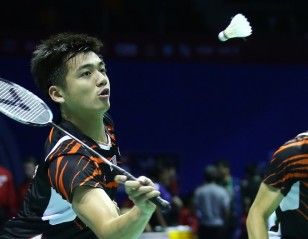
Malaysia Stun Korea – Vivo BWF Sudirman Cup Day 1 Session 2 10 May 2015
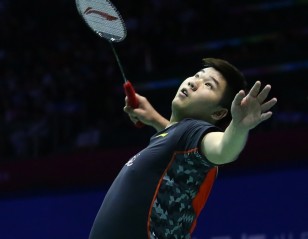
Singapore Survive Spanish Assault – Vivo BWF Sudirman Cup Day 1 Session... 10 May 2015
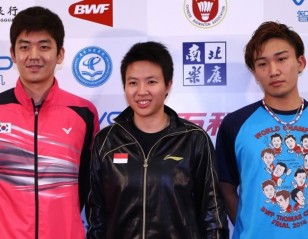
Momota Sets Sights on Vivo BWF Sudirman Cup 9 May 2015
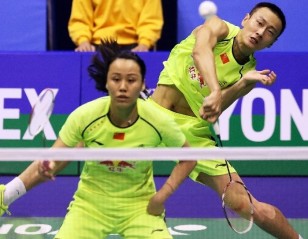
Intriguing Badminton in Dongguan – Vivo BWF Sudirman Cup 2015 2 May 2015
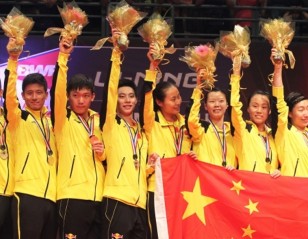
Germans Open Versus Titans China – Vivo BWF Sudirman Cup 2015 23 April 2015
